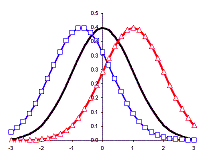| Vitae | Goal Statement | Coursework | Analytical & Integrated Thinking | Research | Professional Experiences | Dissertation Planning |
Reflection: EDUC 800 Ways of Knowing
The Ways of Knowing course with Shelley Wong was undoubtedly the most
significant course of my academic career. Although I had a
strong sense of what I wanted to research (e.g., motivation and
self-regulation among college and adult aged students) I struggled with
finding
a context to study the variables in. The concepts and theories that I
learned in that class will influence my current and future research
goals as
well as the way I view and understand the world. Specifically, all the
students were required to select a topic to study and present/teach to
the
class over the course of two class periods. Although I had no idea what
Critical Race Theory (CRT) was, I was drawn to the name. I did not
expect that my understanding of CRT would change my entire approach to research and understanding of the social world.
CRT is a movement, dialogue, and perspective that analyzes the
institutional, structural, and hierarchical nature of race and racism
and is a
force that challenges racism through the power of law. This approach to
understanding race brings to light how all people, regardless of race or
gender, indirectly promotes institutionalized racism through their
implicit actions and beliefs. Although this perspective is rooted in
the domain
of law, CRT has serious implications for education and how achievement
is influenced by the structures of race. For example, how do
stereotypes (e.g., the different baseless positive/negative
preconceived notions about gender, race, sexual orientation, or other
group that
people use to understand that specific group of people) influence the
achievement patterns of different students? There is strong research to
support that the stereotype threat phenomenon is real and heavily
influences how students of a negatively and positively stereotyped
group
performs on tests. However, my specific area of interest is how
different stereotype endorsements influence how
self-regulated/motivated they
are to achieve, how that may differ across domains, and how that may
influence their achievement patterns. In other words, how much does
a
given individual feel he or she conforms to a cultural stereotype and
how does that influence self-regulation and motivation?
Many of the research on stereotypes focus on stereotype threat and how
it influences achievement among students in a testing situation,
however, I believe that the influence of stereotypes goes beyond
testing situations to everyday learning behaviors and cognitions such
as
self-regulation and motivation. However, the construct of stereotype
endorsement has not been widely researched; therefore, a measure to
examine stereotype endorsement has not been developed. As a result, I
must create my own measure of racial stereotype endorsement in
order to examine what I want to understand.
Dialogic Journal Prt 1
Dialogic Journal Prt 2
Knowing Paper
